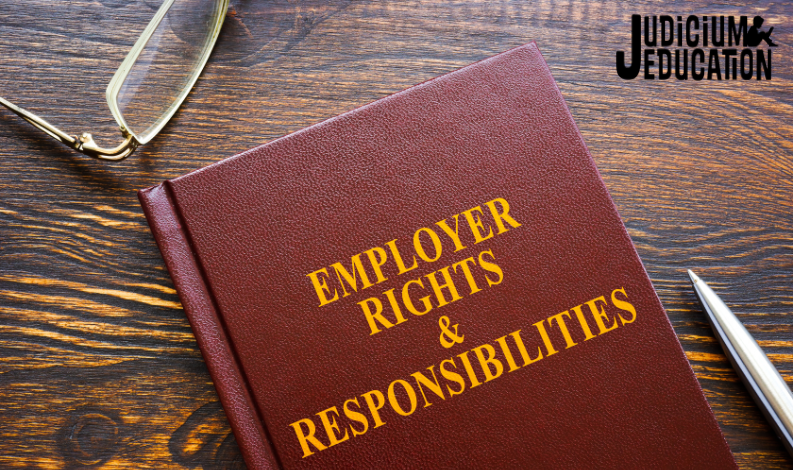Employment Law and HR: Understanding the New Sexual Harassment Duty

Overview of the new duty
Effective from 26 October 2024, schools, Multi-Academy Trusts (MATs), and all employers in the UK will be legally required to take proactive steps to prevent sexual harassment in the workplace. This new duty, which builds on existing anti-discrimination laws, is designed to ensure that every workplace is a safe environment, free from inappropriate behaviour. The duty holds employers accountable for harassment not only from colleagues but also from third parties such as parents, suppliers, and contractors.
The legislation aims to encourage a zero-tolerance culture towards harassment, addressing previous gaps where harassment could go unreported or unresolved. By introducing a proactive duty, the government intends to ensure that institutions, including schools and MATs, take preemptive steps to foster safe environments for both staff and students.
What it Means for Schools and MATs
For school leaders, HR departments, and safeguarding teams, this new duty will necessitate revisiting and strengthening policies, procedures, and staff training programs. It requires the introduction of more robust preventative measures and clear reporting mechanisms to tackle harassment in all its forms, ensuring that schools are not just reacting to incidents but actively preventing them.
Failing to comply with this new duty can lead to significant consequences, including financial penalties such as a 25% uplift in tribunal compensation for successful claims, enforcement action from the Equality and Human Rights Commission (EHRC), and long-term damage to the school’s culture, reputation, and staff retention.
Legal Responsibilities for School Leaders, HR Departments, and Safeguarding Teams
Under the new law, the ‘reasonable steps’ defence will still apply, but schools will need to show that they have proactively implemented measures to prevent sexual harassment. This includes:
- Developing and regularly updating anti-harassment policies: Policies must be clear, well-communicated, and aligned with EHRC guidance. These policies should cover harassment by colleagues as well as third parties, such as contractors or parents.
- Embedding a culture of respect: School leaders must lead from the top by establishing a culture that promotes respect and inclusion. Zero tolerance for harassment should be a core value communicated consistently.
- Providing ongoing staff training: Regular training for staff, especially those in leadership and managerial roles, is crucial. Schools must ensure that employees understand what constitutes harassment, how to report it, and how to manage complaints effectively.
- Creating effective reporting mechanisms: There should be clear, accessible channels for staff to report any instances of harassment, ensuring that complaints are handled promptly, sensitively, and appropriately.
- Proactively monitoring the work environment: Schools should take steps to regularly assess the risks of harassment and gather feedback from staff, including anonymous surveys and exit interviews, to identify any issues before they escalate.
Common Challenges Schools Face in Addressing Sexual Harassment
While the new sexual harassment duty is a positive step toward creating safer schools, there are several challenges that schools may face in its implementation:
- Underreporting: Many cases of sexual harassment go unreported due to fear of retaliation, embarrassment, or uncertainty about how complaints will be handled. Schools must ensure that staff feel confident and supported in reporting any inappropriate behaviour.
- Staff training gaps: Ensuring that all staff, including leadership, are adequately trained to identify, prevent, and address sexual harassment can be challenging.
- Some staff may not fully understand the nuances of harassment or feel equipped to handle complaints.
- Unclear policies: Even with anti-harassment policies in place, a lack of clarity or awareness can hinder their effectiveness. Schools must ensure that policies are comprehensive, easy to understand, and accessible to all employees.
- Cultural resistance: Changing a school’s culture to ensure an environment free from harassment can be difficult, particularly if inappropriate behaviours have previously gone unaddressed or if there is resistance to new procedures and training requirements.
Judicium's Duty to Prevent Sexual Harassment Training and Resource Package
Judicium offers a comprehensive package to help schools comply with the new sexual harassment duty and create a safe, harassment-free workplace.
The package includes:- Live interactive training and workbook on “Discrimination in the Workplace” for senior leadership teams (SLT) and line managers, ensuring that they are well-prepared to lead by example.
- Certificate of completion for SLT and line managers to document their participation in the training, which can serve as evidence of compliance.
- Recorded training and workbooks for use in training the entire workforce, ensuring that all staff are aware of the school’s policies and procedures regarding harassment.
- Ongoing support for line managers to assist with any questions that arise following the training.
- Posters for the school environment that highlight the types of sexual harassment and the proper reporting procedures.
- Manager’s Guide to handling complaints, helping staff address concerns appropriately from the outset.
- Template tracking spreadsheet
- Template Anti-Harassment and Bullying Policy drafted in line with EHRC guidance.
- Template Risk Assessment to help schools identify and mitigate potential risks related to harassment.
- Flow Diagram to clearly outline what constitutes harassment, making it easier for staff to identify and report issues.
- Increased confidence in handling sexual harassment cases.
- Peace of mind knowing that policies, training, and reporting mechanisms are fully compliant with the new legal obligations.
- Enhanced workplace culture, with a clear message that harassment is not tolerated.
- Reduced risk of legal claims and financial penalties by demonstrating proactive steps to prevent harassment.
Ensure your school or trust is fully prepared to meet the new sexual harassment duty by securing Judicium’s comprehensive Duty to Prevent Sexual Harassment Training and Resource Pack. Ensure your team has the knowledge and tools to create a safe, respectful, and compliant environment.
Learn more and purchase your package HERE.
© This content is the exclusive property of Judicium Education. The works are intended to provide an overview of the sofa session you attend and/or to be a learning aid to assist you and your school. However, any redistribution or reproduction of part or all of the contents in any form is prohibited. You may not, except with our express written permission, distribute or exploit the content. Failure to follow this guidance may result in Judicium either preventing you with access to our sessions and/or follow up content.
Related content
.png)
These are the most frequently asked questions taken from Judicium’s Employment Law ‘Sofa Session’ from the 5th of March with Employment Law & HR Consultants Jenny Salero, LL.B (Hons), L.P.C., Kelly Rayner, LL.B (Hons), QLTT and Suzanne Ravenhall, Chartered MCIPD.

Many schools and academy trusts face ongoing recruitment challenges due to teacher shortages. However, did you know by securing a Sponsorship Licence, schools can legally recruit skilled professionals from outside the UK, ensuring a strong and diverse teaching workforce?

These are the most frequently asked questions taken from Judicium’s Performance Management Series Part 1: Top tips for appraisals with Q and A ‘Sofa Session’ from the 12th February, with our resident experts Jenny Salero, Kelly Raynor, and Suzanne Ravenhall

This blog is based on Judicium’s Safeguarding & HR TRA and DBS referrals demystified ‘Sofa Session’ from the 29th January 2025, with our resident experts Sarah Cook and Jenny Salero.

These are the most frequently asked questions taken from Judicium’s Top Tips for Managing Sickness Absence ‘Sofa Session’ from the 22nd January, with our resident experts Jenny Salero, and Suzanne Ravenhall
.png)
This summary is based on Judicium’s Employment Law ‘Sofa Session’ from the 4th of December, with our resident experts Jenny Salero, Kelly Rayner and Suzanne Ravenhall


Sofa Sessions | HR